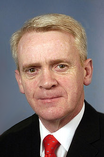|
| |||||||||||||||||||||||||||||||||||||||||||||||||||||||||||||||||||||||||||
| |||||||||||||||||||||||||||||||||||||||||||||||||||||||||||||||||||||||||||
| |||||||||||||||||||||||||||||||||||||||||||||||||||||||||||||||||||||||||||
|
| |||||||||||||||||||||||||||||||||||||||||||||||||||||||||||||||||||||||||||
A Federal election for the parliament of Australia was held on Saturday 9 September 2062 to decide the members of the 2062-2064 members of the Australian Parliament. The incumbent Nationalist party, led by the long time incumbent Andrew Burges, won their ninth successive electoral victory, a record for any party in the nation's history.
The 2062 election is often called a realigning election by many political observers, as it oversaw a number of changes that would ultimately change the nature of politics in Australia. Firstly, the Nationalists were stripped down to their lowest number of seats in the lower house since 2045, and would never reach the same pre-2062 levels again.
Secondly, it saw to the rise of a more fractured, but multi-party system within both the Senate, and House of Representatives, and for one of only a few times during the Nationalist rule in Australia, the opposition parties outnumbered the incumbent's, especially in the Senate, where the parties often allied in blocking supply to the Nationalists, which ultimately resulted in the highly contentious 2064 dissolution election.
Finally, the election saw the split of the decade long coalition between the Democratic and Progressive parties, the latter of which refused to remain in the alliance after the Democrats forced out their head Donald Turnbull, and replace him with the more conservative Anthony Shortland. According to Andrew Burges' successor, Russell Brown, if it wasn't for "leadership disputes, interparty rivalries, and ideological differences", the incumbent government would have been forced out of power.




